AZ疫苗副作用 欧盟增列罕见神经病变
中央社
9/08/2021
新冠疫苗。(美联社).webp)
针对英国阿斯特捷利康(AstraZeneca, AZ)疫苗可能产生的副作用,欧盟药品管理局(EMA)今天在定期安全更新上增列极罕见神经病变「格林巴利症候群」(GBS)。
欧盟药品管理局表示,在7月31日前,全球各地共施打5亿9200万剂Vaxzevria(AZ疫苗品牌名称)疫苗,其中有833例出现「格林巴利症候群」的通报,AZ疫苗与这个疾病间因果关系「至少有合理的可能性」。
但欧盟药品管理局在副作用分类中,将上述副作用列为「非常罕见」,即发生频率最低,并强调AZ疫苗益处大于风险。
此前,美国食品暨药物管理局(FDA)也曾对娇生集团(J&J)生产的COVID-19(2019冠状病毒疾病)疫苗加注警语,警告这支疫苗可能导致「格林巴利症候群」副作用。
台7例疫苗接种死因出炉 打高端验出主动脉剥离、心梗塞
聯合報
8/31/2021
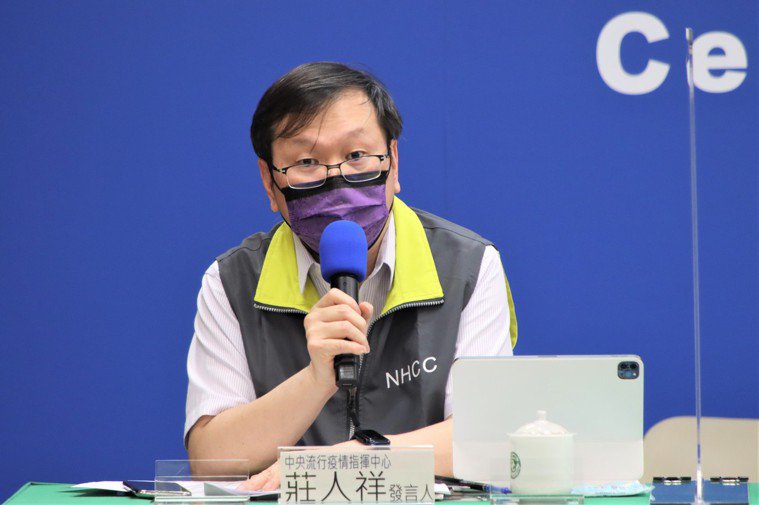
指揮中心今日公布,新增87例疫苗接種後不良事件,其中有49例非嚴重事件,其他38例疑似嚴重不良事件。其中38例中又有2例死亡,分別為一名66歲男子接種AZ疫苗後65天死亡,另一例為56歲男子,接種莫德納疫苗後33日死亡。另外3例接種高端後死亡者已經解剖。
發言人莊人祥表示,全國統計已接剖個案新增7人,分別為接種2例AZ疫苗、2例莫德納疫苗及3例高端疫苗。接種高端後死因包含2例主動脈剝離,為桃園陸姓作家及基隆女,另有1例狀動脈硬化心臟病和併心肌梗塞。接種AZ疫苗後死因為氣管咽塞、支氣管肺炎,接種莫德納後死因為心肌病變及主動脈剝離。
指揮中心統計,截至8月30日累計接種1092萬8720劑疫苗,其中AZ接種655萬6653劑,莫德納接種372萬3389劑,高端接種64萬8678劑。有關施打疫苗後死亡解剖部分,累計已解剖156例,其中95例與慢性病相關。
台湾新北首例 中年男打2剂莫德纳疫苗 1个月后不治
8/30/2021
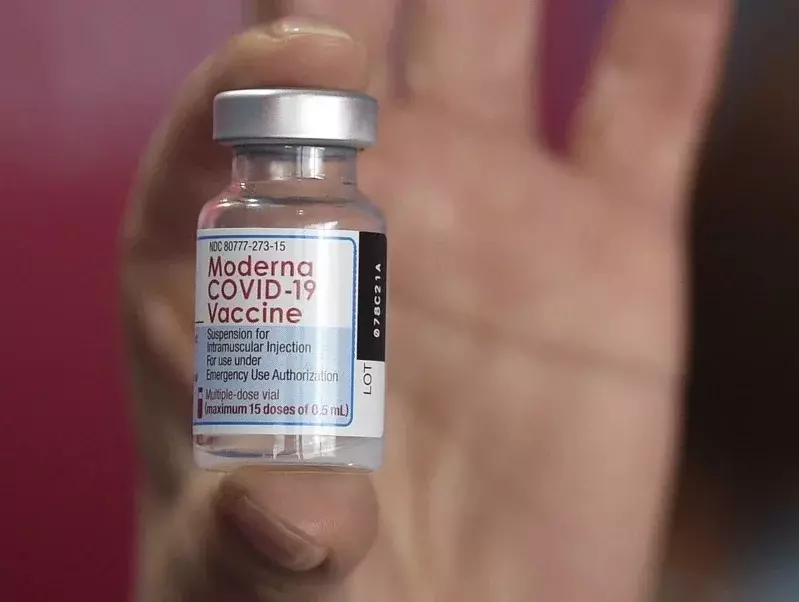
台湾新北市今天接获通报,中和区一名男子在打完2剂莫德纳后一个月出现身体不适,25日请假后,28日被发现死亡,为新北首例打两剂疫苗后死亡第一例。
新北市卫生局指出,这名56岁死者有糖尿病史,6月28日先接种第1剂莫德纳后无异状,上月26日打第2剂,经过一个月后25日出现身体不舒服,请假一天回家,28日就被发现死亡,为新北首例打完两剂疫苗后死亡个案。
卫生局表示,有关死亡原因是否与疫苗有关,由中央「预防接种受害救济审议小组」审议认定。
欧洲监管机构警告:mRNA疫苗可能有更多副作用
文 / 潘万莉
8/15/2021
(早报讯)欧洲药品管理局(EMA)8月11日表示,有一小部分人在接种完辉瑞和莫德纳的冠病疫苗后出现了三种情况,该机构正评估这些情况是否可能是副作用。
这些情况包括多形红斑(Erythema multiforme),即一种过敏性皮肤反应;肾小球肾炎(glomerulonephritis)或肾脏炎症以及肾病症候群(Nephrotic syndrome),一种导致大量尿蛋白流失的肾脏疾病。
不过目前关于这些症状的细节非常少,EMA表示已经要求疫苗制造商提供更多数据,以便他们可以确定任何潜在关联。
EMA表示,截止7月29日,莫德纳公司的疫苗已经在欧洲经济区(EEA)接种超过了4350万剂,辉瑞/BioNTech的接种达3.3亿剂。
研究:美军接种mRNA疫苗后的心肌炎发病率高于预期
文 / 陈慧璋
6/30/2021
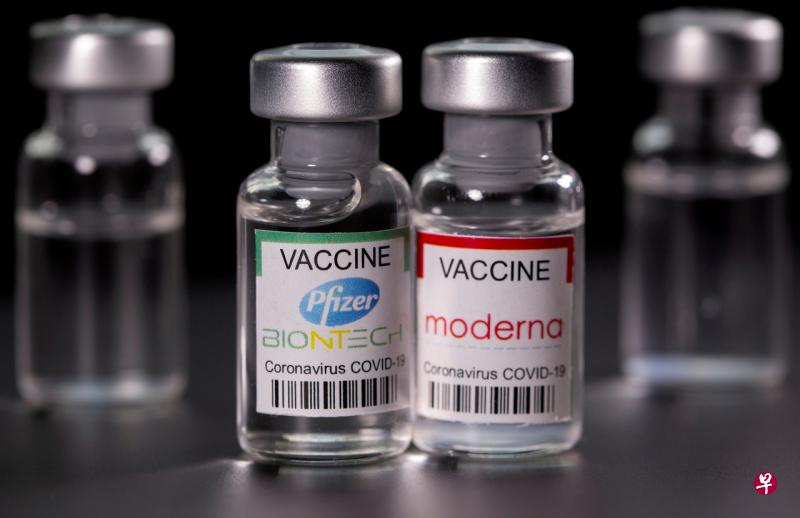
(早报讯)根据美国一项新研究报告,美国军人接种冠病疫苗后出现心肌炎的发病率,尽管十分罕见,但还是比预期来得高。
路透社报道,23名平均年龄25岁的健康男性在接种辉瑞—BioNTech或莫德纳冠病疫苗的四天内申诉胸痛,发生率高于先前预期。这两款疫苗都是采用信使核糖核酸(mRNA)技术。
其中19人是接种第二剂疫苗的现役军人,其余人为接种第一剂或是退役军人。
研究说,根据一般人群的估计,在接种了两剂疫苗的43万6000名男性军人中,可能会出现8起或少过8起心肌炎个案。
研究中的8名军人接受扫描诊断,扫描显示出无法用其他原因解释的心肌炎迹象。研究中的患者年龄介于20至51岁。
美国卫生监管机构上周在采用mRNA技术的冠病疫苗文献中添加警告声明,指接种者面对心肌炎的罕见风险,但指这个情况多出现在年轻男性身上,并强调接种疫苗以预防冠病的好处依然大于其风险。
研究报告周二(29日)在心脏病学医学期刊JAMA发表。出现心肌炎的23人在报告发布时已经康复或正在康复中。
美国疾病控制与预防中心(CDC)4月开始调查采用mRNA技术的冠病疫苗和心肌炎的潜在联系。以色列此前表示正在研究接种辉瑞-BioNTech疫苗者出现心肌炎病例的情况,美国军方过后也报告了同样情况。其他国家的卫生机构也开展自己的调查。
Heart inflammation after COVID-19 shots higher than expected in study of U.S. military
By Carl O’donnell
6/29/2021
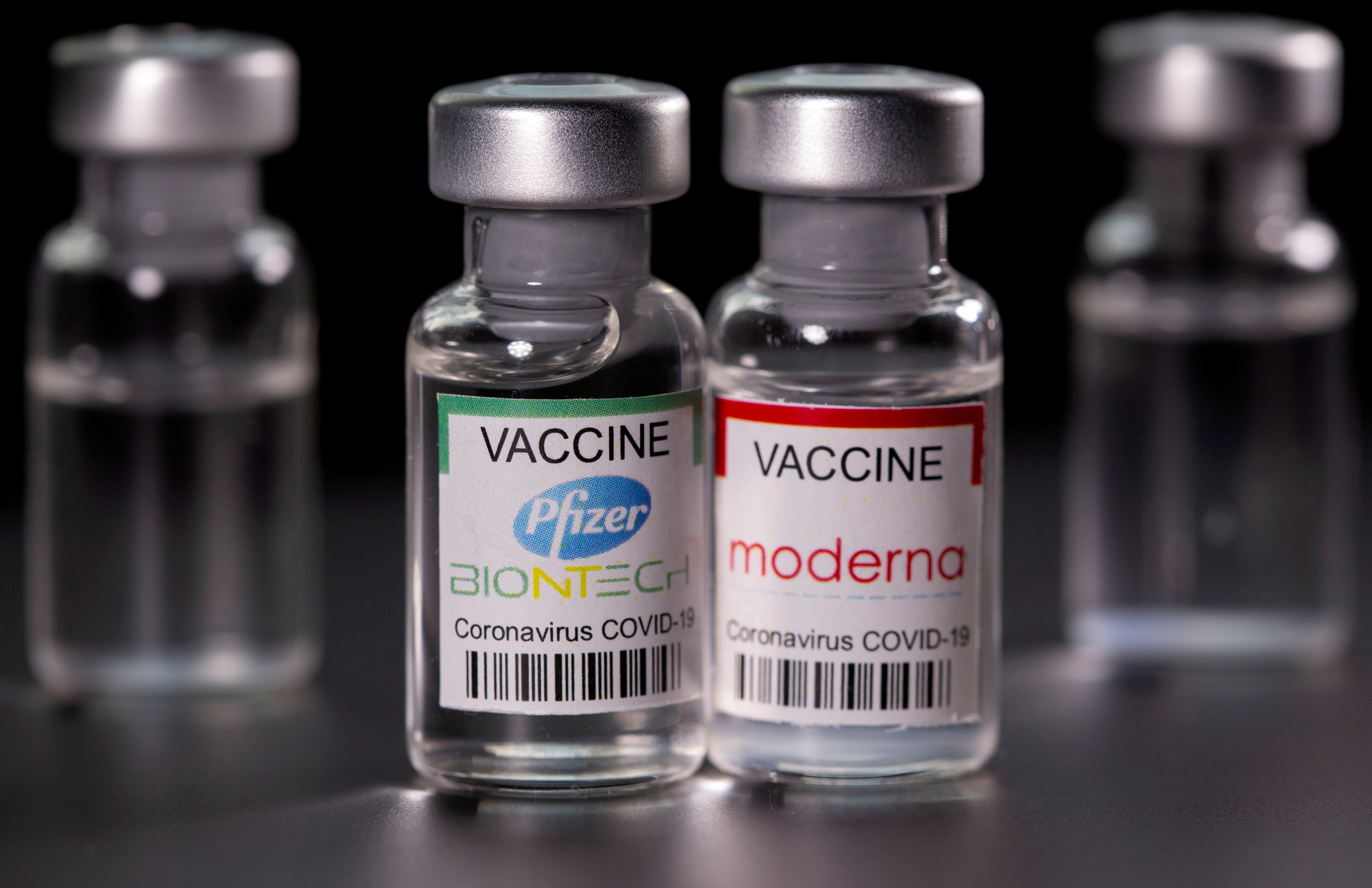
June 29 (Reuters) – Members of the U.S. military who were vaccinated against COVID-19 showed higher-than-expected rates of heart inflammation, although the condition was still extremely rare, according to a study released on Tuesday.
The study found that 23 previously healthy males with an average age of 25 complained of chest pain within four days of receiving a COVID-19 shot. The incident rate was higher than some previous estimates would have anticipated, it said.
All the patients, who at the time of the study’s publication had recovered or were recovering from myocarditis – an inflammation of the heart muscle – had received shots made by either Pfizer Inc (PFE.N) and BioNTech SE (22UAy.DE) or Moderna Inc (MRNA.O).
U.S. health regulators last week added a warning to the literature that accompanies those mRNA vaccines to flag the rare risk of heart inflammation seen primarily in young males. But they said the benefit of the shots in preventing COVID-19 clearly continues to outweigh the risk.
The study, which was published in the JAMA Cardiology medical journal, said 19 of the patients were current military members who had received their second vaccine dose. The others had either received one dose or were retired from the military.
General population estimates would have predicted eight or fewer cases of myocarditis from the 436,000 male military members who received two COVID-19 shots, the study said.
An outside panel of experts advising the U.S. Centers for Disease Control and Prevention (CDC) said last week that reports of myocarditis were higher in males and in the week after the second vaccine dose than would be anticipated in the general population. A presentation at that meeting found the heart condition turned up at a rate of about 12.6 cases per million people vaccinated.
Eight of the military patients in the study were given diagnostic scans and showed signs of heart inflammation that could not be explained by other causes, the study said. The patients in the study ranged from ages 20 to 51.
The CDC began investigating the potential link between the mRNA vaccines and myocarditis in April after Israel flagged that it was studying such cases in people who received the Pfizer/BioNTech vaccine there, and after a report that the U.S. military had also found cases.
Health regulators in several countries are conducting their own investigations.
美少数年轻人接种冠病疫苗后出现心肌炎
文 / 陈慧璋
5/24/2021
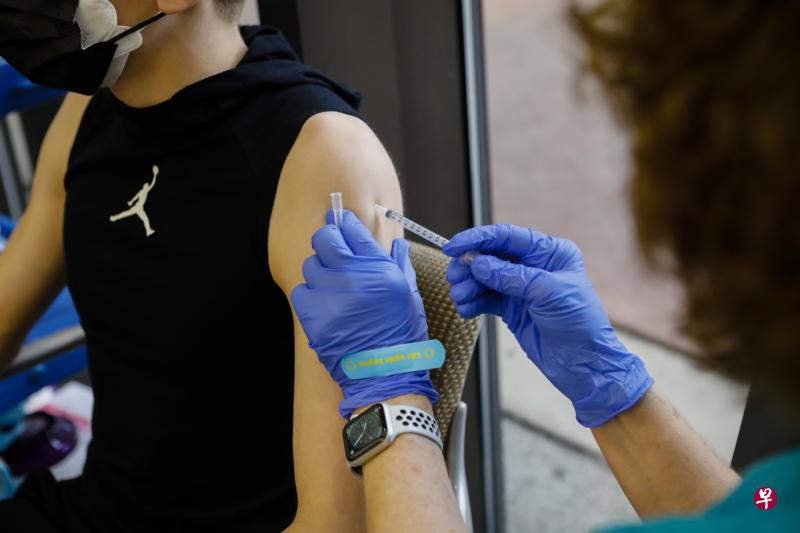
(早报讯)美国少数年轻人或青少年在接种冠病疫苗后出现心肌炎问题,美国疾病控制与预防中心(CDC)正就此展开调查,目前并未发现两者之间存在明确关联。
法新社报道,美国疾控中心指出,目前关于年轻人接种辉瑞-BioNTech或莫德纳等采用信使核糖核酸(mRNA)技术的冠病疫苗后出现心肌炎的报告“相对较少”,而且多数的症状轻微,可能同接种冠病疫苗无关。
据知,出现此情况的接种者主要是年轻人或青少年,他们在接种第二剂辉瑞-BioNTech疫苗或莫德纳疫苗的四天后出现症状,而出现症状的男性比女性多。
疾控中心补充说,在它的安全监控系统中,接种冠病疫苗后出现心肌炎的报告率与预期的基线率没有差异。
疾控中心没有发布出现心肌炎的人数或具体年龄的详细信息。
美国从5月中旬开始允许12至15岁的青少年接种辉瑞-BioNTech冠病疫苗。
研究:感染冠病后至少八个月仍有抗体
文 / 张佳莹
5/11/2021
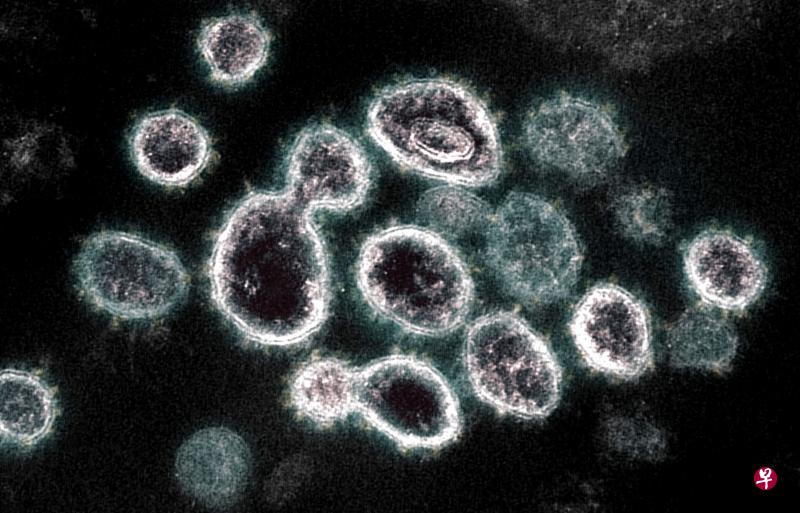
(早报讯)意大利研究员周二(5月11日)说,冠病患者在染病后,血液中至少八个月仍有抗体。
意大利米兰圣拉斐尔医院的一份声明说,“无论疾病的严重程度、患者年龄或其他疾病的存在”,患者仍有冠病抗体。
研究员和意大利国家卫生研究所(ISS)针对162名出现症状的冠病患者进行研究,这些患者在意大利去年的第一波疫情期间到急诊室接受治疗。其中三分之二的患者为男性,平均年龄为63岁;57%的患者有既往疾病,尤其是高血压和糖尿病。
研究员分别在3月和4月采集了血液样本,并在11月再次采集了幸存者的血液样本;此研究其中约29名患者已去世。
圣拉斐尔医院与意大利国家卫生研究所联合发表声明说:“中和抗体的存在虽然随着时间的推移而减少,但非常持久——诊断后八个月,只有三名患者的检测不再呈阳性。”
这项研究成果已发表于国际科学期刊《自然通讯》(Nature Communications)。此研究还强调了抗体产生在从冠病中恢复的重要性。研究员说:“那些无法在患病前15天内产生抗体的人,患上严重形式的冠病的风险更大。”
少数人接种辉瑞疫苗后出现心肌炎 以色列调查
文 / 陈慧璋
4/26/2021
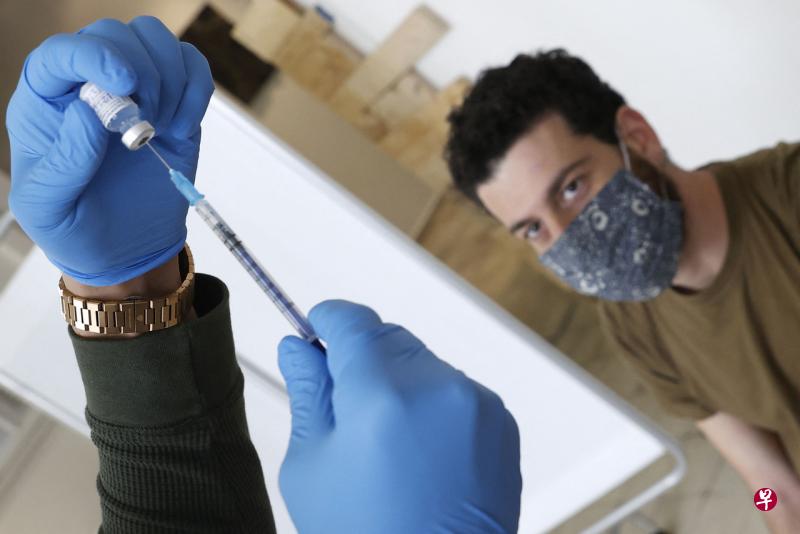
(早报讯)以色列小部分人在接种辉瑞-BioNTech冠病疫苗后出现心肌炎的症状。以色列卫生部正在就此情况进行调查。目前尚未得出任何结论。
路透社报道,以色列冠病应对协调员阿什星期天(25日)表示,一项初步研究显示,在超过500万名接种辉瑞-BioNTech疫苗者中出现了数十起心肌炎个案。
这种情况大部分是在接种第二剂疫苗后出现,而且多出现在30岁以下的年轻人身上。
他说,以色列卫生部正在研究心肌炎的发病率是否过高,以及它是否可以归因于疫苗。
辉瑞表示对有关问题知情,并强调,该公司定期和彻底审查所有不良情况个案,并没有观察到心肌炎的发病率高于一般人口中可预见的发病率。
以色列已有500多万人接种了辉瑞-BioNTech冠病疫苗。
研究:接种辉瑞疫苗后两到四周内有效性达85%
文 / 林煇智
02/19/2021
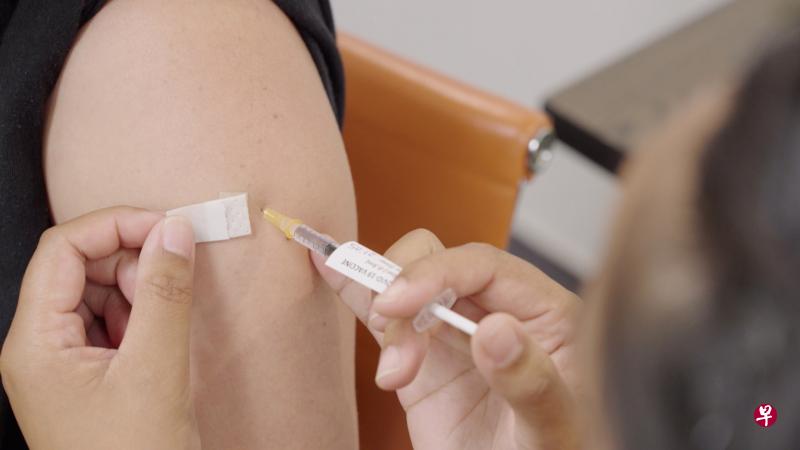
(早报讯)发表于《柳叶刀》医学杂志一项研究显示,民众在接种第一剂辉瑞冠病疫苗后两到四个星期内,对冠病病毒感染的有效性达85%。
法新社报道,这是针对以色列特拉维夫附近Sheba医院9000多名医务人员所进行的调查。该医院于12月19日发起了大规模疫苗接种计划,该接种计划被认定为是目前世界上最快的。共约有7000医护人员接种了第一剂疫苗,其余则未接种。
以色列的研究发现,民众在注射第二剂疫苗后一周内,辉瑞疫苗的有效性高达95%。
Six Spaces Home Staging

Contact: Hongliang Zhang
Tel: 571-474-8885
Email: zhl19740122@gmail.com
在这组调查对象当中,研究人员对那些表现出症状,或与冠病患者接触过的人进行测试之后发现有170人被诊断出患有冠病。其中,有52%尚未接种疫苗。
比较两组,Sheba的研究计算出该疫苗在接种后1到14天之间有效率为47%,在15到28天后有效率为85%。
该研究其中一名作者雷杰夫-约谢说:“我们看到的是,民众在接种疫苗后两周到四周之间就已经表现出非常有效的功效,可将冠病症状与其感染减少了85%。”
他说,尽管这种疫苗“非常有效”,但科学家仍在研究完全接种疫苗的人是否仍可以将病毒传播给他人。
马克龙感染冠病 多名政要受波及得自我隔离
来自 / 联合早报
发布 / 2020年12月17日

(柏林综合电)法国总统马克龙冠病检测呈阳性,多名曾与他密切接触的法国和外国政要随后开始自我隔离。
爱丽舍宫昨天发布声明说,马克龙是因为出现初步冠病症状而接受检测。按照国家防疫规定,马克龙将“自我隔离七天,他将继续工作,并远程开展活动”。
马克龙是继美国总统特朗普和英国首相约翰逊之后,感染冠病的全球数位国家首脑之一。
与马克龙接触过的法国总理卡斯泰和国民议会议长费朗随即进入自我隔离。
欧盟多国誓要在年底前接种
马克龙周一在巴黎出席经济合作与发展组织主办的会议,同时与会的欧洲理事会主席米歇尔和西班牙首相桑切斯也自我隔离。
法国与其他欧盟成员国如今把抗疫希望寄托在冠病疫苗,纷纷誓言要在年底之前启动冠病疫苗接种。
德国卫生部长施潘宣布,德国将在12月27日开始分发由辉瑞和BioNTech公司联合开发的冠病疫苗,并优先考虑为居住在养老院的老年人接种。
欧盟成员国须等待欧洲药品管理局批准辉瑞疫苗的使用,才能开始接种计划。该疫苗已在英国、美国、加拿大等国家投入使用,预计欧洲药品管理局会在12月21日批准该疫苗。
施潘昨天说,如果如期获得批准,德国将在12月27日开始疫苗接种,欧盟其他成员国也计划在同一天启动疫苗接种。
德国每日新增确诊病例居高不下,周三新增死亡病例更是破最高纪录,达952起。德国全境从周三起实施“硬性封锁令”,直至明年1月10日。除了超市、药店和银行,所有非必需场所都必须关闭;学校和幼儿园也停课;企业员工则应暂停工作或尽量居家办公。
柏林市民坎布尔在防疫措施收紧的第一天,看着冷冷清清的街道说:“感觉像是星期天。这些措施是必要的,但也令人倍感压力。”
法国总理卡斯泰周三宣布,法国将于12月最后一周开启冠病疫苗第一阶段接种工作。法国年底之前会接收约116万剂疫苗,接下来两个月另有230万剂疫苗送达。
法国的冠病疫苗接种计划,未必获得人民的热烈响应。根据法国一项民调,仅53%受访者愿意接种疫苗,这个比率是全球最低之一。
欧盟委员会主席冯德莱恩周三在欧洲议会上说:“要结束这场大流行病,须要多达70%人口接种疫苗。这是一项艰巨任务,所以让我们尽快接种疫苗,27国从同一天开始。”
世界卫生组织欧洲支部呼吁欧洲人民在来临佳节期间须加强防疫,与亲友欢聚也要戴口罩及保持社交距离。世卫也警告,明年初欧洲可能暴发第三波疫情。
出席白宫选举派对 3人染疫包括住房部长
文 / 陈慧璋
11/09/2020
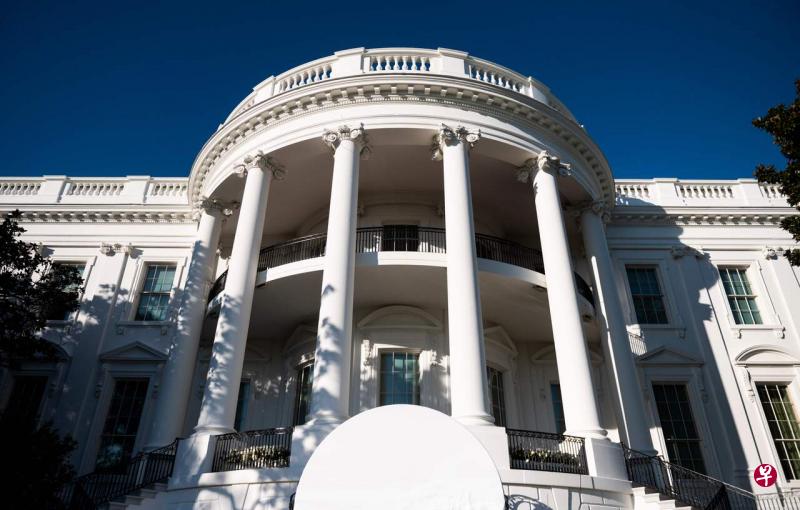
(早报讯)美国白宫在11月3日选举日之夜举行派对,现在传出有至少三人参加派对后确诊2019冠状病毒疾病,其中一人为住房与城市发展部长卡森。
《纽约时报》报道,当天晚上在白宫东厅举行的派对有数百人参加,出席者在东厅里一起看开票,没有保持安全距离,而且许多人也没有戴口罩。
卡森的发言人说,他在9日确诊冠病,目前精神良好,并为自己能够获得有效疗法感到庆幸。
另据两名知情者,美国总统特朗普的新顾问波西8日接受冠病检测,结果呈阳性,白宫幕僚长梅多斯则在2日确诊。
彭博社:白宫幕僚长梅多斯确诊染冠病
文 / 张佳莹
11/07/2020
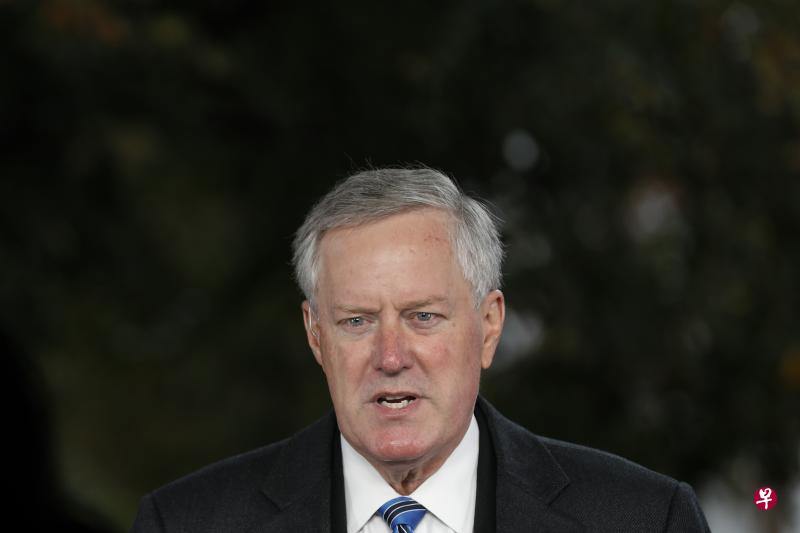
(早报讯)据彭博社报道,白宫幕僚长梅多斯(Mark Meadows)确诊染冠病。
据报道,知情人士说,梅多斯在周二选举日后告知了密切的顾问圈子。梅多斯未立即回复置评要求,白宫发言人也未对此置评。目前尚不清楚梅多斯何时得知他染病,或者他是否出现了冠病症状。
据一位知情人士透露,梅多斯参与了特朗普在选举后挑战几个州的计票过程。
据两位知情人士透露,特朗普的竞选助手特雷纳(Nick Trainer)也染冠病,特雷纳和竞选发言人拒绝置评。
当总统特朗普上个月因确诊冠病住院时,梅多斯留守在特朗普床边。
特朗普或成超级传播者 美国政府急追查206人
文 / 潘万莉
10/05/2020
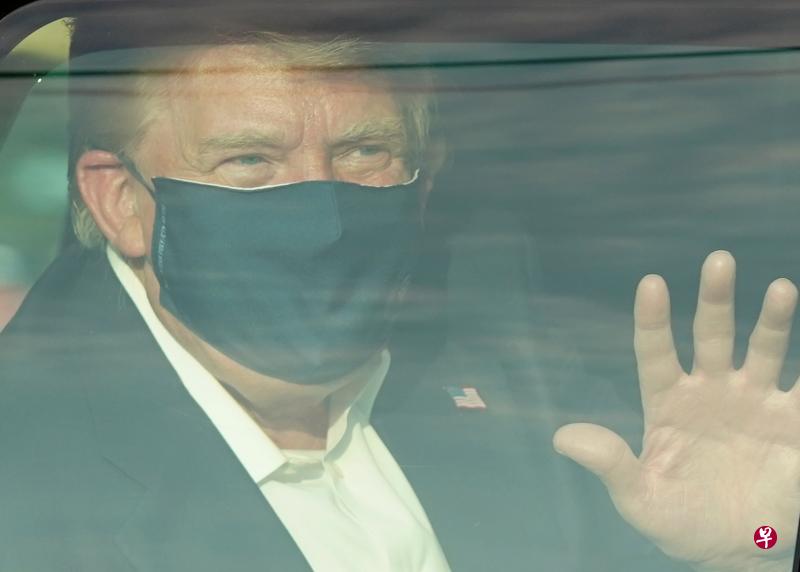
(早报讯)美国卫生部门发现,美国总统特朗普确诊前几小时,曾出席纽泽西州的募款活动,官员担心他会成为超级传播者,下令追踪参加这场活动的206人的下落,避免疫情继续扩大。
据报道,卫生部门获报后,立即要求白宫提供参加活动的206人和工作人员的名单,目前已全数取得联系,卫生部门说明,如果与会者和特朗普的互动没有保持美国疾病控制与预防中心的准则,就需居家隔离14天,并每天监控身体状况。

当地官员透露,这场募款活动办在纽泽西州贝德明斯特的特朗普国际高尔夫球场,许多与会者、员工都住在该州,卫生人员也将前往该处并提供卫教。截至目前为止,除了特朗普确诊外,还有另外八名特朗普的心腹确诊。
10/05/2020
America has a super-spreader president. He put us all – and himself – at risk
BY Moira Donegan
Now that the virus has reached Republicans, maybe they will have to know what the rest of the world feels like?
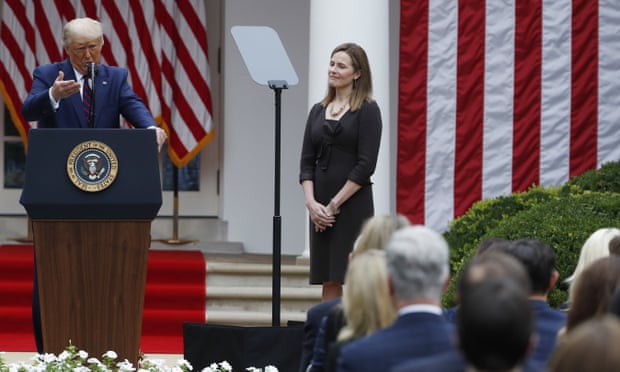
Maybe Donald Trump got Covid-19 at the Rose Garden ceremony announcing his nomination of Amy Coney Barret to the supreme court. On Saturday, 26 September, Donald Trump gathered major Republican party leaders at the White House to celebrate his nomination of the rabidly anti-choice judge, along with national leaders in the anti-choice movement. At the event, onlookers were seated uncomfortably close together, and virtually none of them are wore masks. Barrett and her pointedly large family huddled around Trump both indoors and outdoors, without a thought of social distancing. Later, videos emerged from the event of Republicans hugging. In one, the attorney general, William Barr, wipes snot from his nose on to his hand, and then goes on to shake hands with many others – a metaphor for his time at the justice department that is perhaps a bit too on the nose. As numerous national Republicans sicken, at least eight cases of the virus have now been linked to that event.Trump, Covid and empathy for the world’s least empathetic manRobert ReichRead more
Or maybe Trump got it the night before, on Friday, 25 September, when he mingled, again unmasked and indoors, at a campaign fundraiser at the Trump International hotel in Washington. He rubbed elbows there with members of the Republican National Committee, including Ronna McDaniel, the committee chairwoman. McDaniel flew home to Michigan the next day, and began exhibiting symptoms of the virus a few days after. She has since tested positive.
Or maybe he got it at the presidential debate in Cleveland the following Tuesday, 29 September. Trump and his entourage were supposed to be tested upon their arrival at the venue, as the Biden camp was. Instead, the Republicans showed up late, and refused both testing and masks. Trump proceeded to scream, unmasked and nearly uninterrupted, for 90 minutes. Viewers watching on high-definition screens could see droplets of spittle flinging from his mouth. Among other things, at the debate he disparaged his opponent, Joe Biden, for wearing masks in public. Eleven cases have now been traced to that event.
It’s not clear when Trump last tested negative for the virus, and the White House has been elusive at best and deceptive at worst in their public accounts of when the administration became aware that the virus was circulating in the president’s inner circle and just how bad his condition has gotten. This past Friday, 2 October, Trump was airlifted to the hospital – but not until after financial markets had closed for the weekend. When a team of doctors gave a rosy depiction of his condition to assembled news cameras on Saturday, saying his prognosis was good, his chief of staff promptly contradicted them in an attempted off-the-record conversation with pool reporters, in which he said that the president was doing much worse than the doctors had made it seem.
The administration’s handling of the president’s illness has had the shambolic quality of Wile E Coyote attempting to catch Road Runner. They are caught in such absurdly transparent lies that one almost expects their noses to grow long as they speak, or a cartoon anvil to drop on their heads in divine retribution. It would be funny, if only these people did not also possess such terrifying power along with their ostentatious incompetence.
But even the Trump camp have not been able to deny that the president knew he had been exposed by Thursday, when Hope Hicks, the senior White House aide to whom the president is usually in breathingly close proximity, tested positive for the virus. Hicks had begun feeling ill while traveling with Trump on Wednesday night, but accompanied him on flights both before and after the onset of her symptoms. Despite Hicks’ positive test, Trump departed on Thursday for a campaign fundraiser at his golf club in Bedminster, New Jersey, where he schmoozed with guests both indoors and outdoors, did not wear a mask and welcomed donors to a buffet dinner.
Why would Trump endanger his own supporters like that? It has long been clear, both from their own statements and from reporting done by outlets such as Vanity Fair, that the Trump administration considers deaths and illness from the virus in blue states to be insignificant, acceptable casualties. But the choice in Bedminster to endanger his own supporters defies that logic. Unless of course, you are Donald Trump, who views ever interaction as transactional and every human being as a number. The Bedminster event, remember, was a campaign fundraiser – it ultimately raised more than $5m for his re-election bid. To Trump, even those who fulfill his own need for constant adulation are less valuable as human beings than they are as sources of revenue. And Trump certainly does not care about the workers whose labor is necessary to put on such events – the security and janitors and caterers and tech staff whose health, lives and families are threatened by his carelessness. The reason Trump continued on to the Bedminster fundraiser even after knowing he had been exposed is simple: he cares less about even his supporters’ safety than he does about getting their money.
There is something poetic, even perversely satisfying, about seeing Trump’s delusions about his own power and imperviousness defied by his infection. Here is a man who has wielded money, privilege and deception to evade consequence in every manmade system. He is not capable of being shamed, and he is seemingly invulnerable to the law, with prosecution of his crimes suspended until he leaves office and civil lawsuits impacting him with all the effectiveness of spitballs launched at a tank. Bad things don’t usually happen to Donald Trump, no matter how much recklessness he exhibits or how much suffering he inflicts, because he is usually able to lie, buy or cheat his way out of his comeuppance. Not so with the virus, which has infected him even though he has treated the disease more as an inconvenient nuisance rather than a national emergency.
Donald the Super-Spreader is an insult to those Americans who have altered their own lives beyond recognition in order to fight the coronavirus
But more than anything, Donald the Super-Spreader is an insult to those Americans who have altered their own lives beyond recognition in order to fight the coronavirus. As lockdowns began in March, the Americans who retreated to their homes were told that the extreme measures were temporary ways to slow the speed of the disease and buy time for the government to come up with a viable response. But the Trump government did not respond, and instead our lives warped and narrowed. Millions have lost their jobs. Children’s educations have suffered as schools have been forced to close. Women who must supervise their children’s online learning have been forced from the workforce at a disproportionate rate, and many of those women’s careers will never recover, their dreams dashed permanently by the incompetence of the federal response. Meanwhile, many of us have not seen our parents in months, for fear of infecting them. More than 210,000 Americans have now died from the virus, most of them alone and all of them needlessly.
Meanwhile, nothing about national Republicans lives seem to have changed. They go on hugging and gathering in close together, wiping their noses on their hands and then shaking them, yelling wide-mouthed about the ineffectiveness of masks. Watching the videos of the Rose Garden ceremony, I couldn’t help but think of the funerals I have attended over the past year over Zoom. Trump and the national Republicans have been living in a different world from the rest of America. Now that the virus has reached them, maybe they will have to know what our world feels like.





